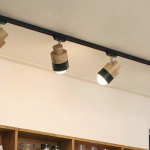
The Christmas cactus (Schlumbergera spp) is a festive favorite with its brightly colored blooms that add cheer to the winter season. It is a popular houseplant because it is easy to care for and looks beautiful when it flowers. Dogs are naturally curious and will often investigate any plant that catches their eye. Unfortunately, some plants are toxic to dogs and can make them sick in different ways depending on where the poisonous substance takes effect in the body. This article will examine whether the Christmas cactus is poisonous to dogs.
Are Christmas Cactus Poisonous to Dogs?
The good news is that the Christmas cactus, also known as Schlumbergera, is non-toxic to dogs. However, the cactus pads and flowers can cause irritation to the stomach if chewed by dogs. The spines of this cactus may also lodge in the dog’s throat or digestive tract if they are swallowed. Other cacti such as the prickly pear cactus (Opuntia genus) are dangerous to dogs and should not be placed in areas where dogs can access them.
Symptoms of Christmas cactus poisoning in dogs include vomiting, drooling, weakness, mental depression and depression, diarrhea, bloody vomit and abdominal pain. The severity of the symptoms depends on the amount of cactus that is ingested and the size of the dog. Veterinary attention is required if the symptoms of a Christmas cactus plant poisoning are severe.
Other holiday plants such as poinsettia, holly and amaryllis are poisonous to dogs and should be kept out of reach of pets. This is because these plants contain chemicals that are dangerous to dogs and will affect them in different ways. The ASPCA recommends removing the flower petals and leaves of these plants so that dogs and other animals do not get in contact with them.
The ASPCA notes that Christmas cacti are not poisonous to cats but they can cause irritation if the leaves and spines are chewed. The ASPCA warns that other holiday plants such as calla lilies, peace lilies, lily of the valley and palm lilies are dangerous to cats because they contain substances that can be fatal.
Pet owners can help protect their pets by placing the Christmas cactus in a high but well-lit area out of reach from the dog and by keeping it out of the way of young children. It is also a good idea to spray other holiday plants with cayenne pepper dissolved in water to discourage the family pet from chewing on them.
To prevent a dog from chewing on a Christmas cactus or other holiday plants, owners should use alternative chew toys for their dog and supervise them closely whenever they are around the plant. If a dog starts showing symptoms of a cactus poisoning, including vomiting and drooling, it is important to contact a veterinarian immediately. The veterinarian will likely prescribe an antiemetic and/or antispasmodic to ease the gastrointestinal distress caused by the cactus. The vet may also prescribe medication to treat any other symptoms that may arise as a result of the cactus poisoning.




